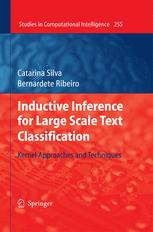

Most ebook files are in PDF format, so you can easily read them using various software such as Foxit Reader or directly on the Google Chrome browser.
Some ebook files are released by publishers in other formats such as .awz, .mobi, .epub, .fb2, etc. You may need to install specific software to read these formats on mobile/PC, such as Calibre.
Please read the tutorial at this link: https://ebookbell.com/faq
We offer FREE conversion to the popular formats you request; however, this may take some time. Therefore, right after payment, please email us, and we will try to provide the service as quickly as possible.
For some exceptional file formats or broken links (if any), please refrain from opening any disputes. Instead, email us first, and we will try to assist within a maximum of 6 hours.
EbookBell Team

4.1
100 reviewsText classification is becoming a crucial task to analysts in different areas. In the last few decades, the production of textual documents in digital form has increased exponentially. Their applications range from web pages to scientific documents, including emails, news and books. Despite the widespread use of digital texts, handling them is inherently difficult - the large amount of data necessary to represent them and the subjectivity of classification complicate matters.
This book gives a concise view on how to use kernel approaches for inductive inference in large scale text classification; it presents a series of new techniques to enhance, scale and distribute text classification tasks. It is not intended to be a comprehensive survey of the state-of-the-art of the whole field of text classification. Its purpose is less ambitious and more practical: to explain and illustrate some of the important methods used in this field, in particular kernel approaches and techniques.